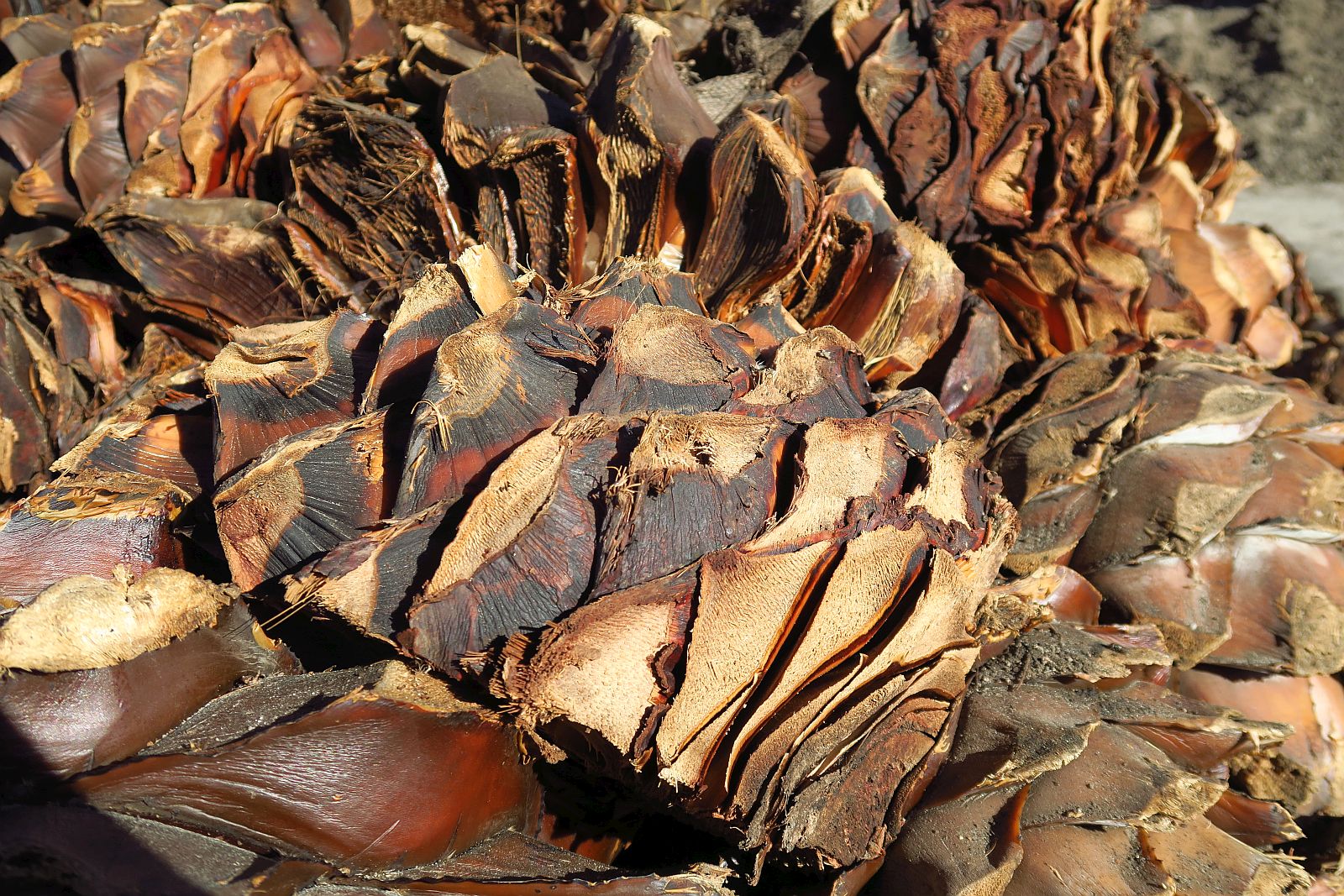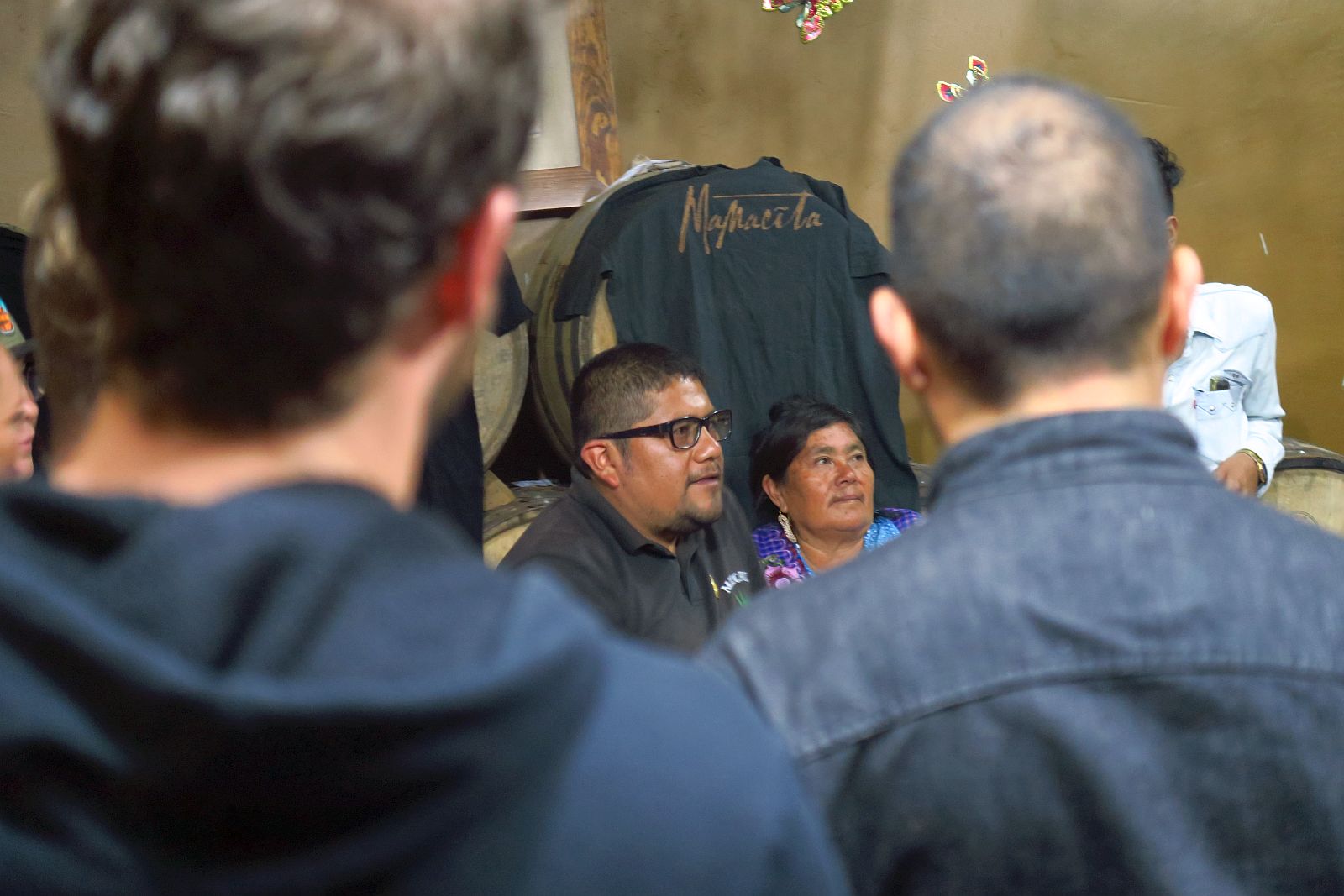In The Heart of Mezcal

“This boom started with the hipsters.”
Eber Villalobos guides me down an artfully graffitied street in Oaxaca City, talking about mezcal’s current boom.
“Chilangos (people from Mexico City) come to Oaxaca for vacation and try the mezcales here. Bar owners started bringing mezcal back to the D.F. and made it trendy. It’s partly a way to touch a piece of our history, partly to proclaim Mexican identity and it’s partly a badge of honor. If you bring something rare to the wider public, you get to say I explored this place and look at what I found.”
A former chilango himself, Eber immigrated to Oaxaca five years ago and founded Ánimas Mezcal, a small brand that markets the mezcales made by area distillers, or mezcaleros.
One could hardly find a better place to make mezcal than Oaxaca, nor a better time to do it than now. Oaxaca provides the ideal soil and climate for the agave, known here as magüey, from which mezcal is distilled. The various species of magüey take years to mature and right now the mezcal business booms from so many magüeys maturing within a relatively short time of each other. Rarely have so many mezcal varieties been available and never before has so much mezcal crossed the border to the wider world.

Mezcal wraps its history in myth. The word itself comes from Mexico’s indigenous Nahuatl language and translates rather unceremoniously to “oven-cooked agave.” In its creation myth, a lightning bolt struck a magüey heart, or piña, instantly cooking and releasing the liquor within. Although the magüey had been used by Mexicans to make alcoholic beverages such as pulque for millennia, the first recorded distillation occurred during the Spanish conquest.
During their conquest of Mexico, Spaniards introduced the modern distillation techniques and technologies of the day. Later, mezcal underwent periods of prohibition as Spanish wine producers fought against threats to their profits. During each prohibition, defiant Mexicans continued to make mezcal and the drink acquired both revolutionary and indigenous associations. We are Mexican, proclaimed makers and drinkers alike, not Spanish. Your laws will not break us. We are united and we will rise victorious. History has proven the revolutionaries right, and to raise a glass of mezcal is to raise a fist to imperialism in all its forms.
Mezcal still plays the guest of honor in modern of ceremonies, from weddings to business meetings, to the ofrendas erected outside houses and in cemeteries during the Day of the Dead.
The dull grey ribbon of Highway 190 leads us southeast from Oaxaca City and into magüey-studded hills in which hide dusty towns and villages that look more at home on the pages of a Cormac McCarthy story than on the surface of the world as I have known it.
Eber pulls off at a red-walled single story building situated on the side of the road. Pieces of farm equipment decorate the yard. A pile of corn husks dry in the sun behind a row of decorative magüey plants.
Dainzu, which means “magüey hill” in Zapotec, forms part of the collective that Ánimas represents. Leoncio and Octavia Santiago, Dainzu’s mezcaleros, lean on the open-air showroom’s counter and greet us warmly as we enter.
The first taste that Leoncio pours us is an espadín with a flavor smooth enough to be dangerous.
“This doesn’t taste anything like the mezcal that I’ve tried before,” I remark. “The other mezcal tasted either sweet or smoky, a bit like a scotch.”
“You must have tried it in El Norte,” Leoncio replies. “Americans like scotch whiskey and have grown accustomed to its flavor. When you try something new, you look for something familiar to hold onto. Most mezcales, though, aren’t smoky and Mexicans don’t really look for that flavor.”
Leoncio’s mezcales embody the idea of terroir, a word usually reserved to describe wine. Small glasses of espadín, cuixe, madre cuixe, tepeztate and tobalá take their turns on the counter. They impart flavors of sun-dried earth, dusty and pollen-laden plants and of hands whose palms will never truly free themselves of soil.
Leoncio and Octavia offer us snacks to accompany our drinks. This being Oaxaca, the snacks are chapulines and gusanos de magüey — grasshoppers and tequila worms. Octavia has prepared each dish with her own proprietary techniques and spice mixes. I would have paid handsomely for the recipes, but she says that some things cannot be sold.
“Do you ever put worms in your bottles?” I ask Leoncio.
“Never,” He laughs. “That was an old thing that became a story before it even had a chance to become a tradition.”
Leoncio explains that the worms, in reality, moth larvae, burrow into magüey plants and can ruin the harvest. During some long-gone infestation, magüey farmers took symbolic revenge on the larvae by drowning them in bottles of mezcal. The act never achieved tradition in Mexico, but the story took root north of the border and savvy salesmen play into it where the demand exists.

At a goat roast at the Los Javis mezcalería in Matatlan later that night, a restaurateur from Chicago raises a glass to mezcal’s future in the frozen north and to the profits it will bring him. As buttery strips of meat fall from a goat carcass that had spent the day wrapped in banana leaves and slowly roasting beneath the earth, he and his fellow Chicagoans congratulate themselves on mounting the rising tide of mezcal early.
While capitalizing on any trend is best done early, that of mezcal has a particularly narrow window. Mezcal production is limited by the very slow growth of the magüey. The fastest growing magüey, used to make espadín, matures in 8-12 years and those used for the rarer mezcales can take up to thirty years to mature. Add to this the agave’s limited growth area and the reason for rhythmic boom and bust cycles becomes clear.
Javier Hernández, the owner of Los Javis, shrugged when asked if he worried about the eventual demise of the current boom.
“This is the way mezcal has always been. You know, years ago, times were harder and I had to go to the United States to find work. But every Oaxacan dreams of home and as things here improved, I found my way back. Things are good now and during these good times, we have to save our money and invest wisely so that our children don’t have to go so far to make their living.”
“What if your children don’t want to become mezcaleros themselves?” I ask.
“That’s fine. They have to make their own way. And if I save enough from my mezcal business that my children can follow their dreams, then mezcal will still be part of their story.”
“And your mezcalería?”
“There will always be someone to pick up where I leave off. This is Oaxaca. Mezcal is in our blood and in our hearts.”

/
 Forest Ray is a former paratrooper, who now writes about science and travel-related topics. He and his wife currently live in their Subaru Forester, in which they have traveled throughout Latin America for the past two years. His work has appeared in The Ecologist, Verge Magazine, the Earth Island Journal and WanderGoGo.com. He maintains the blog www.42Strong.com.
Forest Ray is a former paratrooper, who now writes about science and travel-related topics. He and his wife currently live in their Subaru Forester, in which they have traveled throughout Latin America for the past two years. His work has appeared in The Ecologist, Verge Magazine, the Earth Island Journal and WanderGoGo.com. He maintains the blog www.42Strong.com.
